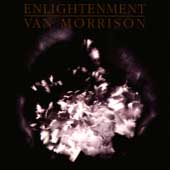There’s an awful lot of music here, so much that it takes a long time to take it all it. Hence, we find the multitude of end-of-year accolades a bit suspect. Sure it’s trendy to champion Tom Waits in this century, but they can’t all be zingers, can they? Therefore, the best way to approach the set is how it was designed: as three separate albums.
Brawlers is the most consistently upbeat disc, starting strong with the hiccupping rockabilly of “Lie To Me”. Many of the tracks sound like outtakes from Mule Variations or Real Gone, and a couple of tracks had debuted on a Waits-produced John Hammond album that came out in between those. There’s a full-fledged studio recording of “Fish In The Jailhouse”, a rousing encore from his 1999 tour, and “Rains On Me”, written with old pal Chuck E. Weiss. “The Return Of Jackie And Judy”, from a Ramones tribute album, sports a rhythm track straight off of White Light/White Heat (essentially a faster version of “LowDown” back at the start of the disc). But the song that got all the attention was “Road To Peace”, an outright indictment of American activities in the Mideast, sung with sparing concern for rhyme, taken nearly verbatim from pages in the New York Times. (He even names names.)
Bawlers would suggest a pile of songs aimed in the general vicinity of one’s heartstrings, but for the most part, it’s more of a tuneful antidote to some of the noisier elements of the first disc. “Bend Down The Branches” is a brief lullaby, of all things, but if you’re looking for variations on “Kentucky Avenue” or “Take It With Me”, you can save the Kleenex. It’s not until “Shiny Things” (once you get past the banjo) that one of those heartbreaking melodies emerges, and flowers full on the intro for “World Keeps Turning”. One true gem is “If I Have To Go”, a pretty ballad left off of Franks Wild Years, while one of the oldest songs here is “Take Care Of All Of My Children”, written for a 1984 documentary about homeless teenagers (and ties in with “Never Let Go”, from a later film based on that documentary). “Tell It To Me” is a gentle waltz, decorated with a rare pedal steel, which also turns up on his cover of “Young At Heart”. He leads an overdubbed choir of himself raising pint glasses to “Goodnight Irene”, and there’s even another Ramones cover in “Danny Says”.
Bastards is devoted to his wackier side, from spoken word pieces to collaborations and obscure covers. How obscure? Well, there’s stuff from tribute albums dedicated to Kurt Weill, Daniel Johnston and Skip Spence, a recital of a Charles Bukowski poem, and two variations on an excerpt from Jack Kerouac’s On The Road. (“Home I’ll Never Be” is the better of the two, and could go on the Bawlers disc; the rest could conceivably fit on Brawlers, but for their inherent wackiness.) Next to “Heigh-Ho”, the highlight is “Altar Boy”, an outtake from the project that inspired Blood Money, sung in the drunk style of the Small Change album. Overall, much of your enjoyment of this disc will depend on how much you liked the Real Gone approach. Two hidden tracks are tucked at the end: “Dog Treat”, a pre-song monologue while his fingers wander about the piano keys (always a highlight of his live shows), and “Missing My Son”, a story with a trick ending that may or may not be an old joke.
This admittedly only scratches the surface of everything in Orphans. Sure, it’s good; there’s just way too much of it. And one person’s single-disc distillation will certainly differ from any other. And the only reason why the album exists is because the Anti label was happy to finance anything he did, on his terms. Must be nice. (For the collector, the set was released three years later as on vinyl, each section split into two records, with a seventh disc including six more songs.)
Tom Waits Orphans: Brawlers, Bawlers & Bastards (2006)—3





